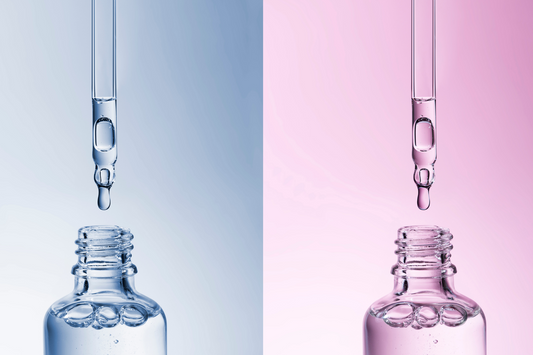Ginger is often regarded as a miracle ingredient especially when it comes to being under the weather. Ginger has been used in so many different applications in varying cultures for centuries and centuries due to its amazing nutrients and properties - but can ginger actually be a secret weapon for hair growth? Revela has done the research so read more below to find out!
The Benefits of Ginger
Ginger is a root spice known for its powerful aroma and taste, and is best known for its spicy, strong flavor. Ginger is not only a tasty ingredient in cooking but also has incredible health benefits and medicinal properties. As an antibiotic, ginger has been used in healing cuts. Within medicine, ginger is the base for many traditional ancient medicine recipes. With its toning properties, ginger can even help to lighten hypopigmented scars. Dating back to ancient East Asian practices, ginger has even been commonly used to reduce scalp inflammation.
Ginger can be used in many different forms as well. From powder to oil, or even in its raw form, the options are limitless.
How To Use Ginger for Hair Growth
While not a prescribed medical treatment for hair loss or thinning, some claim ginger, with over 40 nutrient compounds, can be used to:
- Reinvigorate scalp health: Ginger holds antimicrobial and antiseptic properties that can help the scalp remove build-up and excess dirt. This helps to prevent dandruff also. While not directly promoting hair growth, this aids in overall scalp health.
- Help hair growth: While not a for-sure way to grow hair, ginger certainly helps to promote blood circulation, which can be effective in stimulating your hair follicles, potentially leading to more hair growth.
- Aid dry hair: A rich source of vitamins and phosphorus, ginger has helped aid in dry hair’s appearance.
When used on the hair and scalp, ginger can be used in the form of an oil; but keep in mind it should be diluted. Ginger can also be used in hair masks (with its juice or oil), as well as consumed in powder or pill form orally. Ginger as a supplement has no evidence in promoting hair growth, but its nutrients overall can help boost general health.
While there is no strong scientific evidence to back up ginger as a notable hair growth aid, the improved appearance of scalp and hair may be enough to consider trying it.
Side Effects of Taking Ginger for Hair
Some side effects to using ginger for hair growth may include rashes, itchiness, burning sensations, etc. if you are allergic. Stop taking any ginger supplement if you notice cramping, irritable bowel movements, heartburn, etc.
Before using ginger on your head or hair completely, we recommend rubbing a small piece of ginger on a small area of your arm first. This way you may be able to note any allergic reactions beforehand. If you find you are allergic, contact your healthcare provider for further steps.
Furthermore, in one study on ginger’s properties, the opposite effect of hair growth occurred; 6-gingerol (found within ginger) reduced hair growth within rats and human follicles in vitro. Keeping this in mind, it is important not to depend fully on ginger as the sole solution to hair loss.
So Is Ginger Good for Hair Growth?
Holistic methods of trying to increase hair growth are a popular option these days, with so many hair loss products falling short of efficacy and marketing. While ginger hasn’t been backed by any powerful scientific evidence, you may still be able to benefit from the nutrients and medicinal properties it holds. While ginger is an all-natural option, still be aware of any potential allergies you may have to ginger. If you notice anything out of the ordinary when using any form of ginger, stop use immediately, and consider contacting your healthcare provider. Even if you may not see out-of-this-world results with ginger, it can be a refreshing wash for your hair.
Are you looking for other options to rejuvenate your hair follicles? Revela’s Hair Revival Serum is a unique, patented solution for anyone with thinning hair who's struggled to find a product that actually works.





